Cellist and teacher Naomi Yandell urges parents not to buy their children cheap stringed instruments online – it’s a false economy and only leads to disappointment and waste

Discover more Featured Stories like this in The Strad Playing Hub
Read more premium content for subscribers here
One of the least happy memories of my university days was showing a potential new cello to my teacher and being told that it had to be returned immediately. I had not had any guidance in my search and at that time no one in my family knew anyone in the profession to go to for advice. But I was extremely pleased with it and thought it sounded great. My teacher’s reaction was instant and categorical; it was a kind of allergic reaction in cello-speak, and I was horrified and upset, unaware as I was at the time that buying an instrument is fraught with potential pitfalls for the uninitiated.
Recently, I was reminded of this when I received an email out of the blue from a pupil’s parent informing me that she had bought her child a new instrument online. As I had recently advised her that my pupil wouldn’t need a bigger cello for some time, I was surprised and rather irritated. Not only had the parent taken matters into their own hands with no background knowledge, but also, more to the point, it was my pupil and I who were going to have to live with the consequences. Not wishing to react without seeing the instrument (after all, they could have bought it from one of the excellent online stringed instrument dealers that do exist), I asked them to bring it in to the next lesson.
Picture the scene: my pupil, grinning from ear to ear, proudly struggling into the studio with an enormous case, her parent bringing up the rear with the smaller, somewhat tatty but functioning 3/4-size cello that they had been renting. Without naming names, my heart sank as I saw the logo of the company on the case; and recalling my student experience, I made some preparatory disappointed noises so that they might sense that there could be trouble ahead.
It’s important to have access to musical instruments, but quality has to come into the equation
The ill-fitting zips were jaggedly prised open to reveal an instrument which, while cello-shaped, was disappointing in just about every way – except for the level of shine, which appealed greatly to my poor little pupil. Having lived through a similar experience myself, I was incredibly sad to have to tell her that it would have to go back (and yes, there were tears); but looking at the splodgy, still-tacky glue, cheese-wire strings and ill-fitting pegs, I didn’t even need to play it to realise that this was next week’s bad news.
Relating this to a friend in the local music community, I learnt that the few in-person music shops that do remain open are struggling to deal with the number of instruments presented for repair, having been bought online at dirt-cheap prices. I gather that parents are being told that the cost of the repair will be more than the cost of the instrument, or, just as commonly, that the instrument is irreparable. Given the strain on the planet’s resources this seems mad, with this race to the bottom causing waste on a big scale and resulting in enormous disappointment and frustration among our young people. Yes, it is important to have access to musical instruments, but surely quality has to come into the equation somewhere.
As luck would have it, this story ended well for my pupil. We asked around, and it transpired that a friend of her parents had an old full-size cello in the attic. To be sure, it needed some tender loving care, a new bridge and a decent set of strings. And although it isn’t nearly as shiny as the other one, it is perfectly serviceable, won’t cause problems for a good while – and hey, if my pupil eats her greens, she will be big enough to move up to it in a year’s time.
Read: Opinion: Mass discardment of cheap bows
Watch: Can you hear the difference between a cheap and expensive violin bow?
Discover more Featured Stories like this in The Strad Playing Hub
Read more premium content for subscribers here
The number one source for playing and teaching books, guides, CDs, calendars and back issues of the magazine.
In The Best of Technique you’ll discover the top playing tips of the world’s leading string players and teachers. It’s packed full of exercises for students, plus examples from the standard repertoire to show you how to integrate the technique into your playing.
The Strad’s Masterclass series brings together the finest string players with some of the greatest string works ever written. Always one of our most popular sections, Masterclass has been an invaluable aid to aspiring soloists, chamber musicians and string teachers since the 1990s.
The Canada Council of the Arts’ Musical Instrument Bank is 40 years old in 2025. This year’s calendar celebrates some its treasures, including four instruments by Antonio Stradivari and priceless works by Montagnana, Gagliano, Pressenda and David Tecchler.







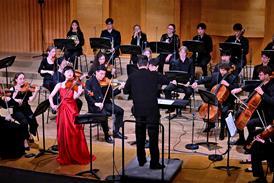




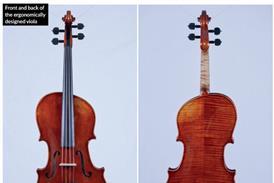


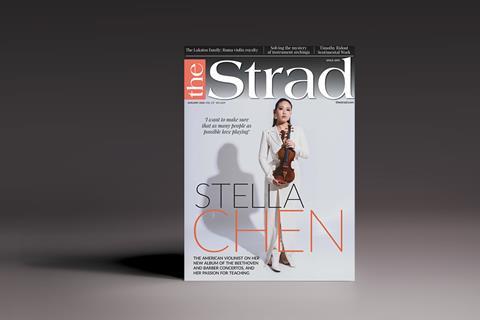




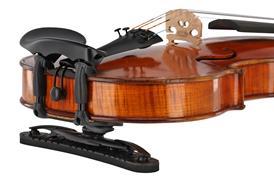

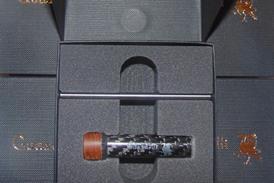






















No comments yet